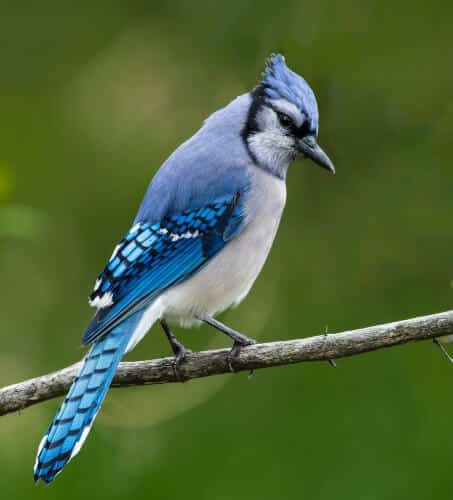Evidence shows that humans are not the only animals capable of self-observation

When we don't know the answer to a puzzle, for example a clue in a crossword puzzle, we understand our limitation and create a strategy to find the missing information. The ability to recognize our state of knowledge, and actually think about thoughts, is known as metacognition. It's hard to know if other animals are also capable of metacognition, because we can't ask them, and studies done so far on apes and birds haven't been able to rule out simpler explanations for this complex process.
However, scientists know that some animals, such as the western bush crow, are able to plan for the future. According to psychologist Arie Watanabe of the University of Cambridge, these ravens, found in the American Northwest, are a favorite of cognitive researchers because they are not "stuck in time," that is, they are able to remember past events. It is known, for example, that they hide food in case of future famine. The question is, are they aware that they are planning?
Watanabe developed a method to test this. He let five birds watch two researchers hide food, in this case, moth larvae. The first researcher could hide the food in any of four cups lined up in front of him. In contrast, three of the glasses standing in front of the second researcher were covered, so he could only put the food in the open one. The trick was that the researchers hid the larvae at the same time, so the birds had to choose which one to look at.
According to Watanabe, if the crows had metacognition, they would realize that they could easily find the food that the other researcher had hidden: the caterpillar must be in the only open cup. And so they should keep an eye on the researcher with the four open cups, because knowing the hiding place will bring more benefit in the future. And that's exactly what happened: the ravens watched the first researcher longer. The results appeared in the July issue of the Journal of Animal Cognition.
Friedrich Hillmann, who studies ravens at the University of Göttingen in Germany, thinks this experiment serves as an elegant way to determine whether animals are able to make inferences about their own states of knowledge. Although the experiment did not directly test the existence of consciousness, the findings are exciting because they provide further evidence that humans are not the only species capable of thinking about their own thought processes. Or, in Watanabe's words, "Some birds prepare for a test like humans do."
The article is published with the approval of Scientific American Israel

One response
Ahh…